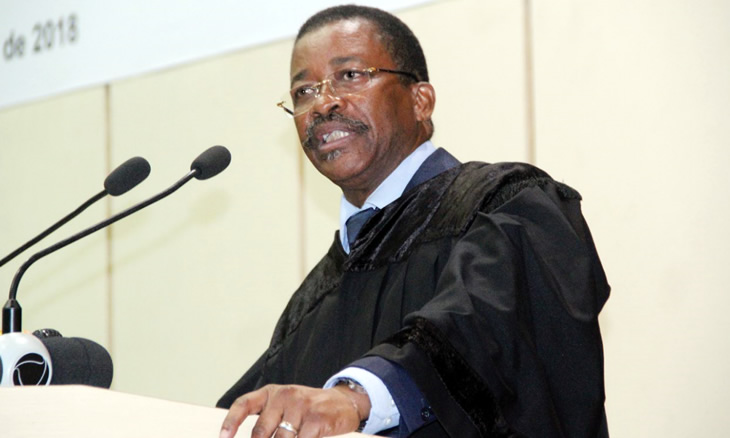Mozambique: Mondlane says 15,000 new members joined Anamola within first seven hours of ...
Mozambican Bar Association calls for public discussion of constitutional amendments

O País / OAM chairman Flavio Menete warned that certain proposals in the draft text might threaten the country’s development. For example the creation of District Assemblies could prove enormously expensive, given that the country has over 150 districts.
The chairperson of the Mozambican Bar Association (OAM) Flavio Menete, on Thursday called for a serious national public debate on the proposed constitutional amendments arising from the negotiations between the government and the rebel movement Renamo on decentralisation.
President Filipe Nyusi announced the consensus between the government and Renamo on 7 February, and he then deposited a set of constitutional amendments with the country’s parliament, the Assembly of the Republic, to be debated during the parliamentary sitting that began on Wednesday.
Renamo in particular has insisted on the speedy passage of the amendments. On Wednesday, the head of the Renamo parliamentary group, Ivone Soares, said she hoped to see the amendments passed by late May.
Speaking at the Maputo ceremony opening the 2018 judicial year, Menete warned against treating such serious matters hastily. He insisted there should be a wide-ranging public debate to discuss how the government/Renamo consensus could be put into legal form, “otherwise we would be excluding relevant sensitivities, and run the risk of leaving out factors that might endanger peace”.
“If we want to defend the rule of law, in which the broad participation by everyone is fundamental, we cannot accept that Mozambicans are not heard”, he said.
Menete pointed out that the Constitution itself states that draft constitutional amendments should be deposited in the Assembly up to 90 days before the start of any parliamentary debate on them. But these amendments were deposited on 9 February, and discussion of them in the Assembly’s Legal and Constitutional Affairs Commission began almost immediately.
Menete insisted that the proposals should only be analysed by the Assembly “after a profound reflection of the matter during the 90 days imposed by the constitution, so that we do not run the risk of adopting precipitate and inconsistent solutions that are likely to generate conflicts in the future”.
He warned that certain proposals in the draft text might threaten the country’s development. For example the creation of District Assemblies could prove enormously expensive, given that the country has over 150 districts.
Menete also objected to the impossibility of independent candidates running for mayor in the municipal elections. This is because, if the current proposals are approved, the direct election of mayors will be abolished. Instead whichever party wins a majority of votes in the municipal assembly election will appoint the mayor.
Turning to the collapse of the rubbish dump in the Maputo neighbourhood of Hulene on 19 February, in which 18 people died when their houses were buried under thousands of tonnes of garbage, Menete blamed this on the authorities’ failure to prevent people from living in dangerous places.
There were other examples – such as people building houses alongside motorways or railways, which could lead to tragedy in the event of a major road accident or a derailment. Menete argued that the constitutionally enshrined right to safety meant the state has an obligation to ensure that citizens do not live in areas where their lives are at risk.
Menete attacked overcrowding in Mozambican prisons. In some jails, he noted, the levels of overcrowding are such that the inmates have to establish a rota for sleeping, since there is no room in the cells for all of them to lie down at the same time.
“This is a serious and inhuman situation”, he said, “and requires courageous and urgent measures from the authorities”.
Attorney-General Beatriz Buchili told the ceremony it is urgent that the justice system should promote an environment of peace and of respect for the rights and freedoms of citizens. This was a factor that would stimulate investment.
She demanded the adoption of legal mechanisms that would promote speedy procedures in the courts, promoting an impartial and credible system, which would fight relentlessly against all forms of crime and corruption.
Corruption, Buchili said, is one of the obstacles preventing the correct functioning of public institutions, and constrains the country’s economic development. She warned that corruption has sunk roots inside Mozambican institutions and society.
Corruption had extended its tentacles inside the judicial system itself, she accused, which was often why courts were so slow to deal with criminal cases.
“Justice that serves economic and social development presupposes the removal of obstacles, such as the excessive number of procedures and conditions demanded for access to justice”, said Buchili.













Leave a Reply
Be the First to Comment!
You must be logged in to post a comment.
You must be logged in to post a comment.